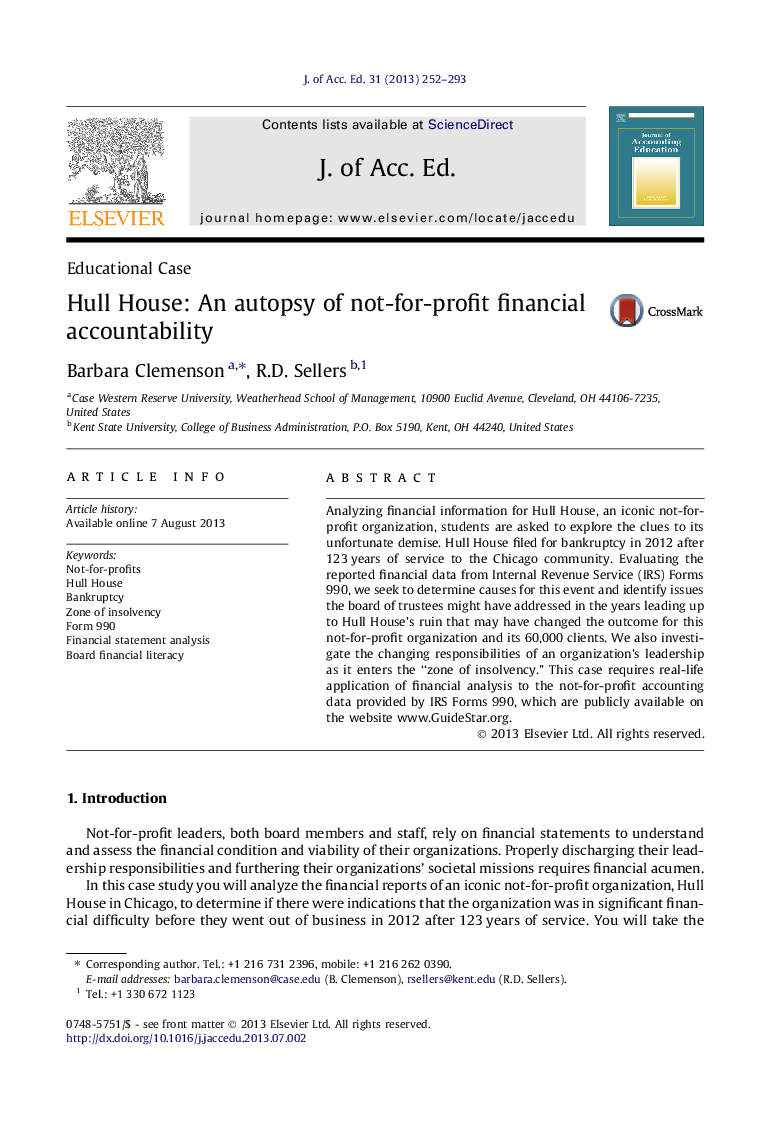| Article ID | Journal | Published Year | Pages | File Type |
|---|---|---|---|---|
| 359433 | Journal of Accounting Education | 2013 | 42 Pages |
•Chicago’s Hull House’s was an iconic 123-year-old settlement house that went bankrupt in 2012.•A decade of financial statements revealed problems, but these were not analyzed or dealt with.•At some point, Hull House entered the Zone of Insolvency.•By not addressing problems, leadership defaulted on their responsibility to the organization.•Studying Hull House’s finances may instruct leaders concerning their duties and obligations.
Analyzing financial information for Hull House, an iconic not-for-profit organization, students are asked to explore the clues to its unfortunate demise. Hull House filed for bankruptcy in 2012 after 123 years of service to the Chicago community. Evaluating the reported financial data from Internal Revenue Service (IRS) Forms 990, we seek to determine causes for this event and identify issues the board of trustees might have addressed in the years leading up to Hull House’s ruin that may have changed the outcome for this not-for-profit organization and its 60,000 clients. We also investigate the changing responsibilities of an organization’s leadership as it enters the “zone of insolvency.” This case requires real-life application of financial analysis to the not-for-profit accounting data provided by IRS Forms 990, which are publicly available on the website www.GuideStar.org.
